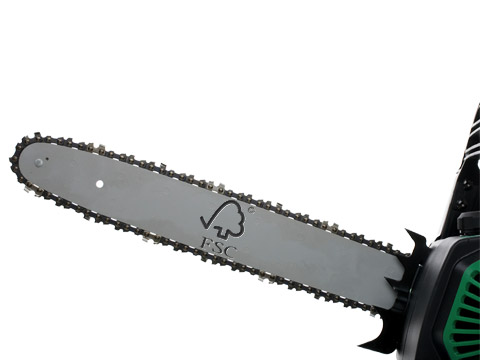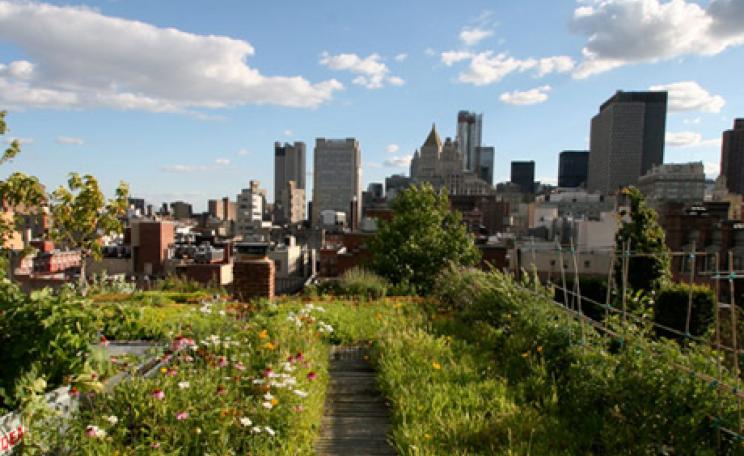WWF estimates 7 per cent of the UK's wood sales could be sourced from illegally felled forests
The UK has only one year left to get ready for new EU rules designed to stop the import and sale of illegally logged wood, timber and paper - but is it ready?
From March 2013, companies importing timber into the EU will be required to keep evidence documenting where the wood has come from. In practice this means companies will have to do as much as they can to ensure their timber is legal. If they can't prove this 'due diligence' they will be liable for prosecution, which could lead to a fine and ban on trading.
However, with the onus on individual countries to enforce the rules and loopholes already exposed, campaigners fear sales of illegal wood will continue.
With an estimated £700 million worth of illegally logged timber bought by consumers every year, WWF estimates the UK is the biggest market in terms of value in Europe. This is largely because it buys so much both directly and indirectly from countries with illegal felling problems, such as the Democratic Republic of Congo (DRC).
As well as the conservation value of forests, illegally logged timber deprives local communities of their livelihood, government tax revenues and has been linked to conflict. Illegal wood also depresses the market price by between 7-16 per cent, according to estimates, making it more difficult for legitimate traders who are sustainably managing wood and forest reserves.
Campaigners have spent more than a decade pushing for an obligation on importers in the EU and US to ensure they are sourcing sustainable wood. However, the new EU-wide rules will only apply to the companies who first put the timber and wood products onto the market and not anyone selling illegal timber.
As such, campaigners fear the spread of shell companies set up to import illegal wood before disappearing out of sight from inspectors.
The Coalition government in the UK had promised to stop that potential loophole by expanding the rules to make it a criminal offence for anyone to be in possession of illegal timber. Similar legislation already exists in the US. Government officials now say they have no plans to add to the EU's new rules.
Green Party MP Caroline Lucas has tried to highlight the issue with an early day motion, supported by 119 MPs, but says ministers remain strongly opposed to closing the loopholes. Even a former champion of the issue of illegally logged timber, climate minister Greg Barker, now only commits to, 'looking very carefully at the new measures to see whether they can do the job.'
Despite long-running campaigns on the issue, awareness of the illegal wood trade is still low - a WWF poll found many consumers mistakenly believed wood products like outdoor furniture or paper sold in the UK would not have been sourced from illegally logged forests.
'There's often no way of knowing,' says WWF timber trade expert George White. 'I could walk into a store and not be able to tell you whether the wood on sale was illegal or not. There is no litmus test. That's what makes it so insidious.'
That puts the onus on suppliers and sellers of wood in the UK to make sure they are not selling illegal wood. Defra has admitting recently there were 'grey areas' over who would be held responsible and that it was still unsure who would check companies are able trace their supplies.
Useful links
WWF’s ‘What Wood You Choose?’
| READ MORE... | |
 |
NEWS UK public unaware they could be contributing to illegal logging - WWF Many consumers mistakenly think that wood and paper products sold in the UK are not sourced from illegally logged timber linked to deforestation |
 |
NEWS EU's ban on billion-pound illegally logged timber trade only the 'first step' New regulations will apply to forest owners and companies importing timber but not to the rest of the supply chain and leaves sanctions down to individual countries |
 |
INVESTIGATION Can we trust the FSC? It's the logo we all look for when buying furniture and wood products. But the Forest Stewardship Council has come in for some serious criticism. Matilda Lee looks at both sides of the argument |
 |
NEWS Campaigners dispute reports of a decline in illegal logging Claims of a decrease in illegal logging mask a growing amount of illegal harvesting by licensed companies and a lack of confidence in methods of measuring logging activity |
 |
HOW TO MAKE A DIFFERENCE Persuading your local station to plant fruit trees Armed with just a good idea and big dose of enthusiasm you can transform a bleak area into a mini orchard. Plus, the best way to approach a station manager... |








